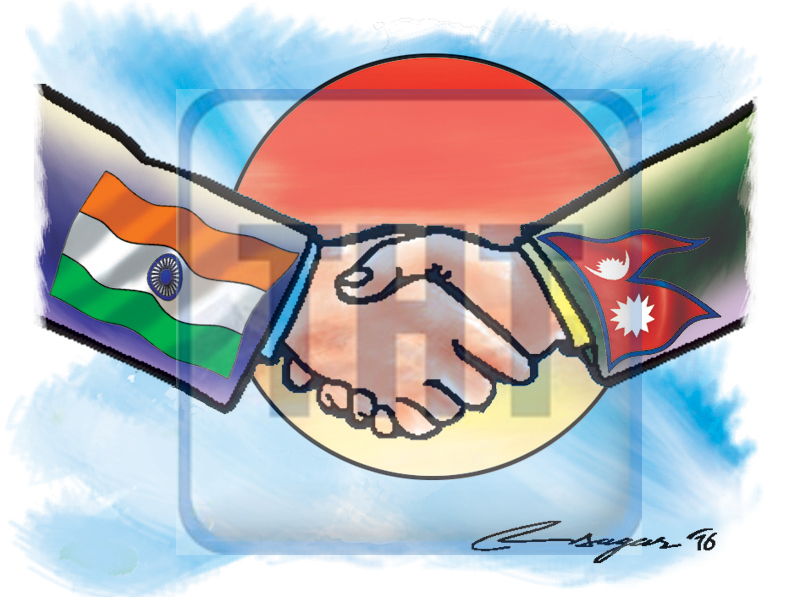Preferential treatment sought
Kathmandu, August 11
In view of skyrocketing imports from India against sluggish exports, Nepal has requested the southern neighbour for preferential treatment for export of agro products and integration of Nepali manufacturing units to its value chain.
Two-thirds of Nepal’s trade takes place with India, but the country’s exports to India has slowed to a crawl.
In a bid to narrow this gap, Ravi Shanker Sainju, joint secretary at the Ministry of Industry, Commerce and Supplies and convenor of the Nepali delegation, held talks with Indian government officials on Thursday and Friday in New Delhi. The talks concluded that preference erosion and reciprocity in export and import of agricultural goods and some manufacturing products should be reviewed in the Nepal-India Trade Treaty.
“India has provided tariff-free, quota-free facility for 90 per cent of tariff lines to least developed countries,” Sainju said. “However, some of the provisions of bilateral trade treaty prevent Nepal from utilising this facility extended to LDCs.”
The Nepali delegation urged the Indian side for more investment and integration of Nepali manufacturing units to the value chain of large-scale industries of India. These could be instrumental in narrowing the widening trade gap with India.
Preference erosion in products and tariff rate quota provision in the treaty were also discussed. As per Sainju, the aforementioned issues will be discussed intensively in the next meeting, which has been proposed for October in Nepal.
“As per a provision of the Nepal-India trade treaty, there needs to be reciprocity in import and export of agricultural goods from/to India and in this context, we cannot be competitive,” said Sainju. “The provision of reciprocity in agricultural goods and some manufacturing goods should be abolished for a certain number of years till Nepal can enhance its competitive edge.”
Nepal-India Trade and Transit Treaty was separated into two different treaties in 1978. Since then, this is the first time that Nepal has sought revision in the Nepal-India Trade Treaty, which is renewed every seven years. The treaty was renewed without change in October 2016.
However, as per a provision of the treaty, a three-month prior notice must be given to amend the treaty before it is renewed.
The government has approached India for revision of the treaty and formed a committee led by Sainju comprising joint secretaries from the Ministry of Foreign Affairs, Ministry of Finance and Ministry of Law, Justice and Parliamentary Affairs. This committee will negotiate with Indian officials to finalise provisions that need to be amended, removed and added in the bilateral trade treaty.






